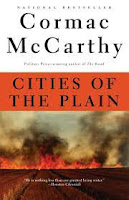Regardless whether you loved him or hated him, there is no doubt after finishing Paul Theroux’s The Mosquito Coast that the main character Allie Fox has burned a place in the reader’s memory. Brought to life on the page, his inflammatory character, his petty emotions, his raw intelligence, his dauntless can-do attitude, his sheer humanity are so utterly convincing that he becomes real in the reader’s mind. While I doubt Theroux was attempting to scale that precise mountain again, he nevertheless has succeeded in creating another memorable character portrait in 2021’s Under the Wave at Waimea.
Readers are introduced to ageing surf star Joe Sharkey on a typical day-in-the-life-of. Aged 62, he no longer competes in big surfing events but still looks forward to hitting the waves on the Hawaiian coastline every time the surf’s up. Mango salad for a late breakfast, a day under the sun and in the water, sunset on the beach, and a beer for a nightcap—it’s a good life. But this does not prevent the world from weighing on him. Getting a little tipsy with his girlfriend one evening at a restaurant, the drive home proves to have a surprise. While the impact is not immediately apparent, slowly but surely it whittles away at his psyche. Laid bare is when the real story takes off.















